Development status of China's gas station industry
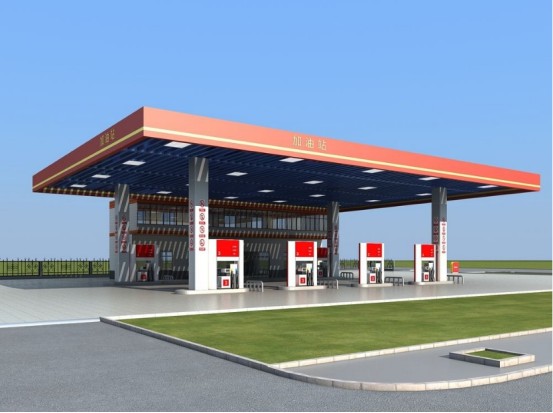
In recent years, China's gas station industry has basically formed a market pattern dominated by state-owned enterprises, with private and foreign enterprises participating in the competition.
The gas station is the terminal of oil consumption at present. There are three main modes of operation: direct operation, franchise chain and franchise. At present, China's gas station industry is in a period of rapid development. By the end of November 2022, the national car ownership will reach 4.15 million. With the development of the times and the acceleration of urbanization, the demand for vehicles continues to increase, the oil price continues to rise, and the field of environmental protection and other reasons, the future development of the gas station industry in China is facing serious challenges.
一、 Industry development status
(1) Competition intensifies and industry restructuring accelerates
In recent years, with the expansion of the domestic oil market, the competition in the domestic oil market has become increasingly fierce. As the terminal of modern oil consumption, the development of gas stations is not only related to the healthy development of social economy and social stability, but also related to the life of the people. In recent years, the petroleum and petrochemical industry has gradually moved towards marketization in the process of continuous reform. Private gas stations have developed rapidly, and foreign gas stations have also joined the competition. This has led to increasingly fierce competition in China's oil market, and the profit space of enterprises has gradually decreased. According to the data of China Gas Station Association, the total number of gas stations in China will reach 115000 in 2022, including more than 50000 gas stations including Sinopec and PetroChina, accounting for 46.31%; There are 57700 private gas stations, accounting for 50.16%.
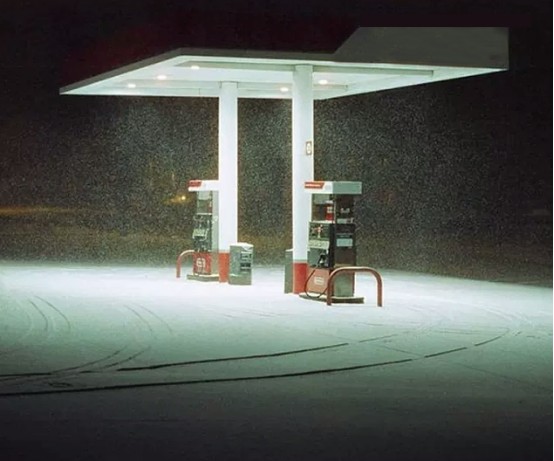
(2) The problem of oil quality is prominent.
China is a major energy consumer and energy importer. In order to meet people's demand for oil and natural gas resources, China's oil imports have increased year by year, while the rapid growth of energy supply has led to an increasing consumption of refined oil. According to the reports issued by PetroChina, Sinopec and CNOOC, the three companies plan to improve the quality of petroleum products in three aspects during the "Fourteenth Five-Year Plan" period: first, complete the upgrading of the sixth national standard gasoline in 2022; Second, in the first half of 2023, we will fully implement the upgrading of the six-level national standard for gasoline and diesel, and complete the upgrading of the seven-level national standard for gasoline and diesel in advance by 2023; Third, continue to promote the "two overall plans" and improve the quality of refined oil.
(3) Rapid development of refined oil retail business
China's refined oil retail business started late, but with the development of domestic economy and the increase of consumer demand for automobiles, China's refined oil retail business shows a trend of rapid development. From January to October 2022, domestic gasoline consumption was 130.69 million tons, down 14.12% year on year. First of all, this year's epidemic spread in many regions of the country, which has caused a certain inhibition of consumer demand; Secondly, the rapid development of new energy, the increasing proportion of replacing traditional gasoline, and the high retail prices in China this year have restrained consumer demand to some extent. Many people have begun to change their mode of transportation and choose environmental protection.
China's refined oil consumption accounts for more than 50% of the world's total consumption, and its gasoline sales volume and market share respectively rank first and second in the world.
(4) Diversified business model of gas stations
With the increasingly fierce market competition, enterprises must constantly innovate their business models if they want to survive and develop. China's oil supply market is dominated by state-owned enterprises and private enterprises. The operation mode of gas stations has gradually changed from a single direct operation mode to a diversified operation mode. With the intensification of market competition, gas station enterprises began to adopt franchise chain, franchise chain and other business models.
At present, in the Chinese gas station market, private oil enterprises have gradually expanded their market share by virtue of their own brand and scale advantages, while foreign enterprises are also actively looking for opportunities to accelerate their access to the domestic market, and state-owned gas stations use their own advantages to compete for more gas station resources.
(5) Intelligent transformation
The business model of traditional gas stations is based on the sale of refined oil. In the Internet era, driven by the intelligent transformation, the gas station business will be transformed into a new retail platform, thus realizing the development model of online and offline cooperation. Intelligent transformation and upgrading can not only provide customers with more convenient and intelligent services, reduce operating costs, but also reshape customer relationships and corporate culture.
二、 Potential safety hazard
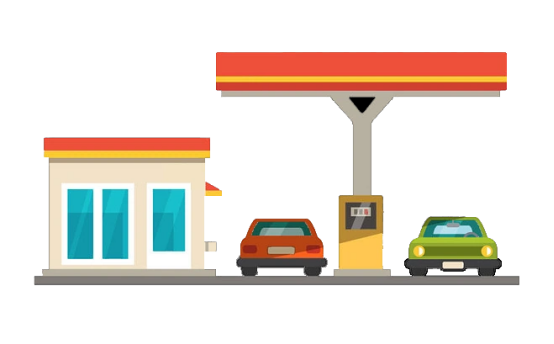
The safe storage of dangerous chemicals has always been a topic worthy of attention, because it is dangerous chemicals. A little carelessness may cause major safety problems for the people and property.
Gas stations can be seen everywhere. Formal gas stations provide people with convenience in life, but some illegal and unqualified gas stations pose a major threat to people's property security. They are like a time bomb, and dangerous situations will occur at any time. Some time ago, the state forced the dismantling of some small gas stations that violated the construction regulations. After leaving, some people continued to set up gas stations without permission.
The gas station refers to the supplement station for retail gasoline and engine oil serving automobiles and other motor vehicles, generally for adding fuel oil, lubricating oil, etc. Because the petroleum products sold by the gas station are flammable, explosive, volatile, easy to leak, and easy to collect static charges, the gas station takes "safety" as the first criterion. Smoking and fire are strictly prohibited in the gas station. It is strictly prohibited to engage in operations that may produce sparks. It is strictly prohibited to fill gasoline into the carburetor and bucket of the car. When entering the station for refueling, the fire must be turned off first, and all dangerous goods are strictly prohibited to enter the station.
Main hidden dangers of gas stations:
1. Static electricity: static electricity may be generated in the process of liquid flowing, mixing, settling, filtering, shaking, spraying, splashing, washing, filling, etc. Static electricity often causes fire and explosion of flammable and explosive liquid.
2. Smoking: The main operation activities of the gas station include oil unloading, refueling, maintenance and construction. During these operations, a large amount of oil and gas will be produced. When the oil and gas reaches a certain concentration, fire and explosion accidents will easily occur. Of the 14 gas station accidents caused by smoking, 4 occurred during the unloading operation, accounting for 28.6%; 3 cases occurred during refueling operation, accounting for 21.4%; 2 cases (14.3%) were caused by oil and gas leakage from equipment; Other situations (installation of old oil tanks, maintenance, construction, etc.) caused 5 cases, accounting for 35.7%. It can be seen that the fire and explosion accidents caused by smoking are likely to occur in all work links, and the managers should not be careless, otherwise it will lead to major disasters.
3. Mobile phone triggered: An explosion occurred in the Wenlianggang area of Kuala Lumpur, Malaysia. A 25-year-old woman was standing in front of the oil gun while refueling at the gas station, playing with her mobile phone. Suddenly, an explosion occurred, causing her body to be hit by the flame and high temperature, and 60% of her body was burned. After receiving the report, the fire department sent emergency personnel to deal with it. After preliminary investigation, it was judged that the flash explosion was caused by the instantaneous combustion of gasoline gas. The injured car did not catch fire, but part of the car body was affected by high temperature.
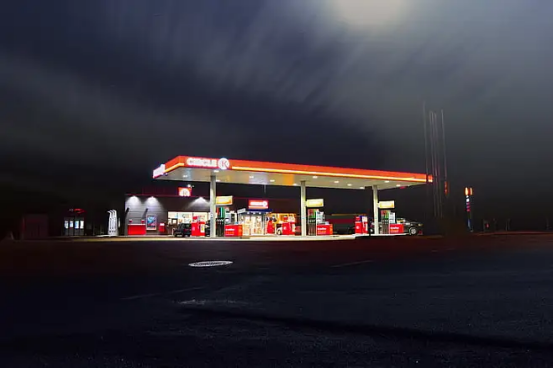
▲An Indian woman answered her mobile phone at the gas station, causing an explosion and burning. (Picture from Sin Chew Daily)
Gas station regulations:
① No fireworks are allowed in the station.
② It is strictly forbidden to engage in operations that may produce sparks in the gas station, such as vehicle maintenance in the station and striking iron tools.
③ It is forbidden to fill gasoline into the carburetor and plastic bucket of the car.
④ All motor vehicles must be stopped for refueling. Motorcycles, light bikes, tractors, etc. can only be started after being pushed four meters away from the fuel dispenser after being stopped for refueling.
⑤ It is strictly forbidden to carry all dangerous goods into the station.
Therefore, the gas station itself should improve the supporting measures, strictly control the fire source, and strengthen its own supervision and inspection. During the use of hazardous chemicals, relevant laws and regulations shall be strictly observed to ensure safety.
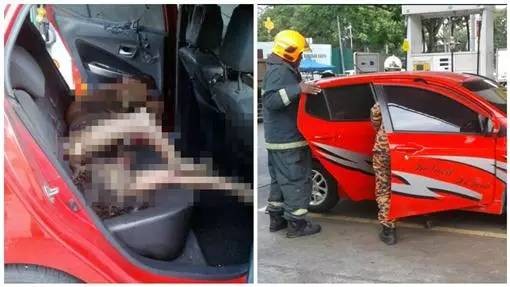
03-25
202302-23
202301-02
202312-10
202209-05
20220755-23059646
gysensor@163.com
Hualian Xingye Business Building, Songhe North Road, Songgang Street, Bao'an District, Shenzhen City